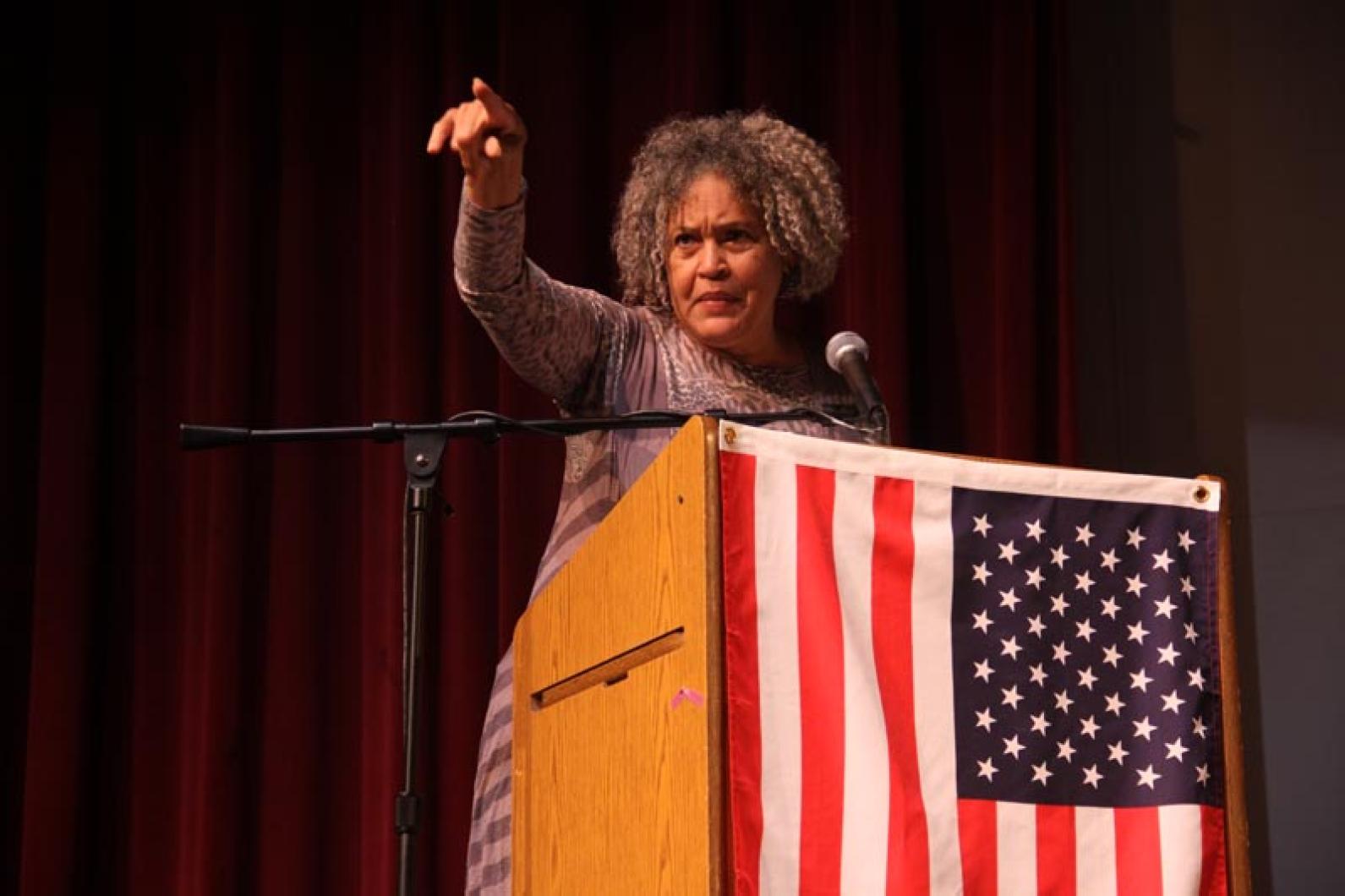The lessons at the Martha’s Vineyard Regional High school last Friday were centered on 1960s diner sit-ins and dormitory riots. And the teacher was civil rights pioneer, author and journalist Charlayne Hunter-Gault.
At a schoolwide multicultural assembly hosted by the Martha’s Vineyard Youth Leadership Initiative, Ms. Hunter-Gault told stories from her youth and read from her recent book, To the Mountaintop, written for high school-aged students.
“How many of you have ever heard of Martin Luther King Jr.?” Ms. Hunter-Gault asked the student assembly. All hands shot up. The same question was posed for Rosa Parks, and again hands flew up. But most students were stumped when presented with the names Diane Nash and David Richmond.
Many people brought change in the country, Ms. Hunter-Gault explained, not just a handful of well-known civil rights activists.
She told the story of the Greensboro Four, a group of students from the Agricultural and Technical College of North Carolina who decided to sit at the lunch counter and order coffee in a local Woolworth’s store, where only whites were allowed to sit.
The students withstood physical attacks, including coffee and cigarette burns, as well as verbal attacks. And a few months later in 1960, Ms. Hunter-Gault said the store desegregated. “The civil rights movement had its first victory,” she said.
Not long after, Ms. Hunter-Gault herself made history as one of the two first African-Americans to attend the University of Georgia.
She recalled the chants outside her dormitory as she attended her first days of classes.
A few days into school, the chants turned into a riot. A brick was thrown through the window of her dorm room.
“I saw the brick and I thought, this is what it’s like in the middle of a riot . . . like the eye of a hurricane. While the wind is blowing ferociously and swirling dust, at the center of this terrifying moment, all is calm. And that’s how I felt.”
She reminded the high-schoolers that the protestors and herself were only a few years older than they are.
At the outset of the assembly, master of ceremonies Jacob Lawrence described the ethnic diversity of the high school student body. “We have 681 students, 30 per cent of which can be considered multicultural,” he said. “From Jamaica, Brazil, the Caribbean, and even South Korea. My ancestry can be traced back to Western Africa. If you get nothing else from this assembly, I hope you get a new appreciation for other cultures on this earth.”
Isabella Hazell-El-Deiry, a member of the youth leadership initiative, said she was inspired to help organize the assembly after attending an Island forum on race last spring, where she heard stories of discrimination and prejudice from African-Americans, native Americans, Brazilians, and Jewish people. “I was sad to hear the stories of students of different races here at the high school,” she said. “We all know it’s happening and we could make it better for each other. My dream is that we could enjoy each other’s cultures and work together to make a better world.”
Emma Hallbilsback, a 2012 high school graduate, told the audience about her recent trip to Boston as a representative at Gov. Deval Patrick’s statewide youth council, where 300 students from schools across Massachusetts gathered to discuss issues from depression to drug abuse.
“Bullying is a root cause for all of these issues,” said Emma. “And it doesn’t matter what race you are, bullying happens.”
Ms. Hunter-Gault later underscored the remarks.
“Every day in this democracy there are challenges that men and women are created equal. You have the power and capacity in you, even in your own school, to insist that there be no bullying, to insist that everybody in here be treated equally and respectfully,” she told the assembly.
“What happens in the future of this democracy is really dependent on you. Because you are the giants on the shoulders of which the next generation will stand.”







Comments
Comment policy »